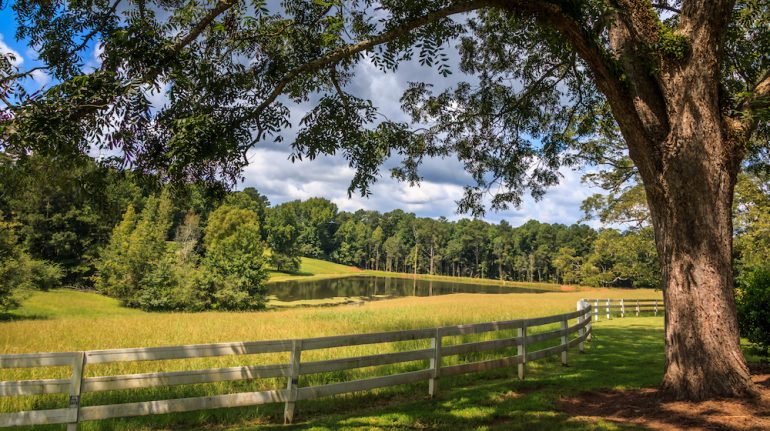Perhaps you want to raise livestock and have your eye on some land in the country. Here’s how to know if that rural land is right for you.
Start with experts on rural land
Any real estate transaction is detailed, but land purchases have their own particulars. Get referrals to find an experienced real estate agent in the area who knows the ropes. Ask the agent about zoning, property and mineral rights, and deed restrictions. Ask for information on installing a septic system or drilling a well if needed.
The county government will also have rules governing your use of rural land, so check the relevant county website early in the process to connect with each agency you need to contact.
Location for your purpose
If you want to raise grazing livestock, grassy land should be your first choice. If you are raising crops, you’ll want the proper type of soil and land contours for what you’re planting.
It is important to look up the property on the FEMA Flood Plain map to ensure it is not in a flood zone. The county website should also have flood zone information.
Utilities on rural land
Depending on what you plan for the land and whether it currently has any utilities, you may need to arrange for water, electric power and/or a septic system. A well for water can cost $15,000 or more. Contact the local electric service provider to determine the cost of delivery from the nearest power pole to the site of any outbuilding that will need it. This cost will run in the $2,000 range.
You’ll need a septic system to manage human waste. Therefore, the county health department will do a “perk test” to determine whether the soil can accept a traditional underground drain field or you’ll need an aeration system that sprays treated water into the air. Septic systems can range from $7,500 to $10,000, depending on the type.
On most rural land, gas is provided by having your own tank of propane. As part of any construction you’re planning, you’ll need to price having a tank delivered and plumbed into any building, plus the ongoing cost of tank refills.
Accessibility and easements
Is the road leading to your rural land private or public? Public roads are maintained by the county government. Connecting a driveway to a public road requires approval from either the county or state highway department. If the road is private, check to see if there’s a neighborhood association that collects money from owners like you to maintain it.
You’ll need to find out about any easements on the rural land you hope to buy. Easements are rights owned by other people or entities that entitle that owner to access someone else’s land. For example, if there are power lines crossing the rural lot you’re interested in, then the power company has an easement allowing it to run the lines over property. If a neighbor can access his property only by way of a road across the land, chances are that a previous owner granted that neighbor an easement.
What stays and what goes?
If you’re buying a property already developed, work out what structures stay and which go. Are livestock feeders, corral fencing, storage sheds and other provisions conveying with the property or being taken by the sellers? Take an inventory and spell out what stays and what goes in writing before closing.
Related – City Limits: What It Takes to Build In the Country


